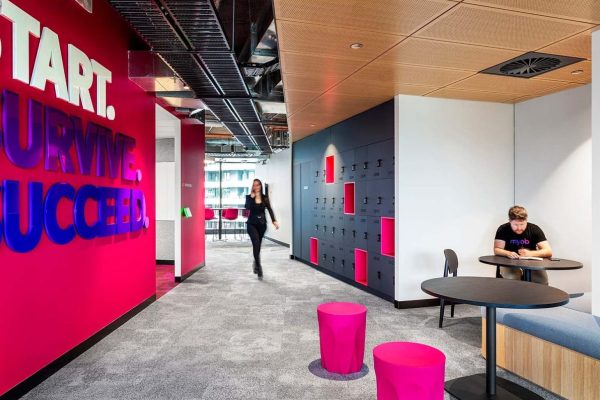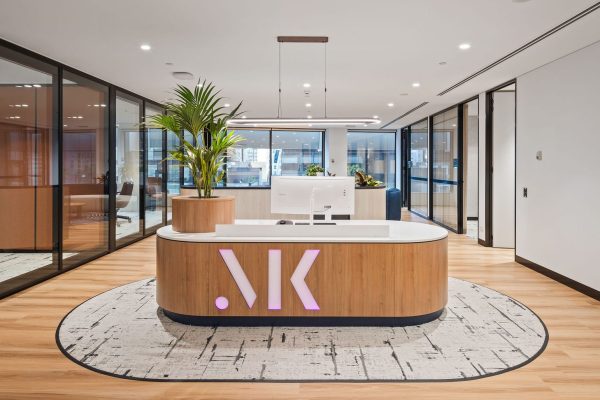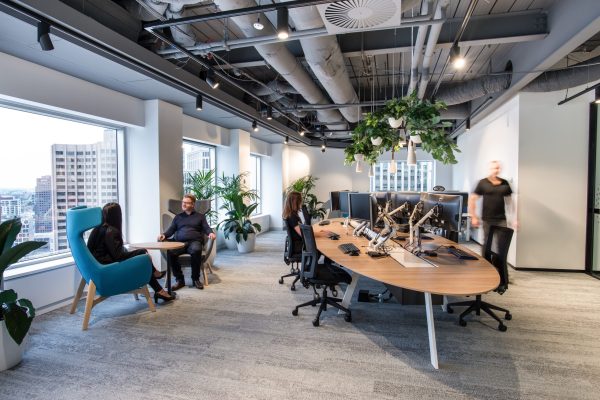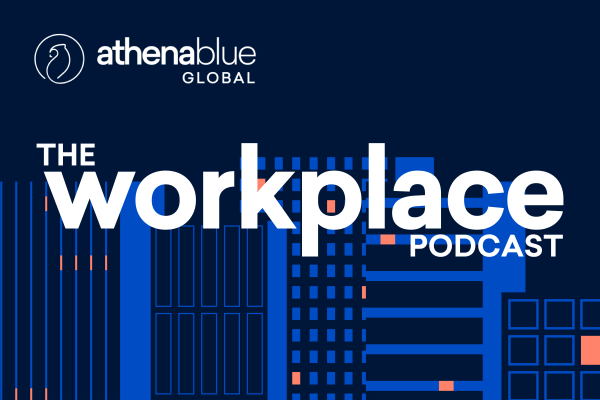How to do this will be different for every business. However, there are five overarching objectives that any company can consider when thinking about how their workplace will drive their company’s performance. These are:
- Brand and marketing
- Workflow and processes
- Culture and human resources
- Flexibility
- Cost efficiency
Understanding which combination of objectives is most important to your business will help tailor a workplace strategy and design to drive business performance.

Brand and marketing
Brand, as marketing guru Seth Godin says, is “every interaction, in any form” that your customers have with your company. So it makes sense that if customers are going to be visiting your workplace, for meetings or events, it should reflect your brand and its values. This could mean everything from the colour palate on the wall, to the layout of the desks and meeting spaces and even the physical address of the building itself. Google’s easily identifiable workspace is a great example of where careful thought has gone into using the office as a brand and marketing tool.
Support workflow and processes
One reason that the aforementioned white cubicles of the 60s are no longer fit for purpose is that the nature of the roles the average office worker carries out have changed, from menial admin tasks to more creative and collaborative work. Different types of thinking may well be required at different times of a day depending on the task at hand: collaborative working for brainstorming, ‘deep work’ when concentrating. Other factors to consider might include spaces for knowledge sharing, where transparency (making people and information visible) is necessary, and how technology can be used as a productivity enabler. A workplace that is ‘optimised’ to drive the best business performance will facilitate these work processes, and provide space for each of the tasks that workers need to perform.
Promote culture and human resources
In the modern world of work, one key driver of a company’s success is their ability to attract the top talent. To do this, it has become increasingly important to create a culture that this talent want to be a part of. Make no mistake – creating culture entails much more than putting bean bags in a break-out area – but that doesn’t mean that workplace design can’t play a role. Creating a space that encourages social interaction and trust, and facilitates health and wellbeing initiatives is key to attracting and retaining the top talent, and therefore improving business performance.
Support flexibility
It’s a commonly accepted truth that the new, millennial workforce values flexibility, but this is equally important to the ‘boomer’ generation too: according to a recent survey in the U.K. 94% desire a flexible work schedule that enables a work-life balance. In short, workplace design that supports flexibility should be seriously considered by most companies. These could include initiatives such as the standardisation of technology, as well as work from home policies and flexi-time.
Deliver cost efficiency
Ultimately, the purpose of any business is to deliver profit, and therefore effective workplace design is that which helps a company deliver the highest returns. Striking the right balance between investing the capital that will help attract talent, decrease churn rate and promote positive culture, while also making best use of the space and keeping rent costs down is a difficult and ever-shifting challenge. Managers should be willing to undertake regular workplace space reviews and act accordingly to make the required changes.
Considering these 5 key objectives and how they relate to your business is key to enabling your workplace to drive optimal business performance. At Athena Blue Global we have worked with market-leading corporations in a range of industries across Australia and New Zealand, and our expertise lies in assessing workplaces to enable design to drive productivity.
At Athena Blue Global, we help organisations shape their best places to work. If you would like to learn more about how we can help you define your future way of working or make sense of your workplace needs, please get in touch with us here.





